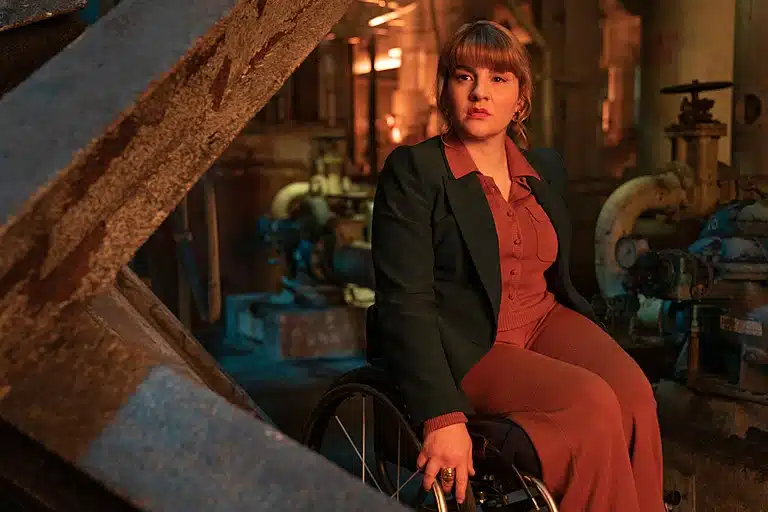I have been a Doctor Who fan since it was brought back in its modern season in 2005. Though I didn’t truly become a fan until David Tennant became 10, there were always a few things that made me feel disconnected to any companion. Theoretically, the companion is the bridge between The Doctor and the viewer. It is a character that we can connect to and imagine ourselves in their place. So, by that notion, as someone with a disability having a TARDIS be accessible is vital. The TARDIS was always inaccessible in some way through the modern era, there were ramps in previous interiors; however, there are still some places within the TARDIS were inaccessible. That is until now.
Seeing the excitement at the interior by the 14th Doctor (played by Tennant) and Donna Noble (played by Catherine Tate) brought a smile to my face.
Since the Children In Need special, Doctor Who has come under some criticism and been accused of ret coning the wheelchair villain, Davros. Unlike some people,but I had a feeling, especially after the latest episode, that the special was not ret conning but trying to rectify a trope that has plagued representations of disabled people in pop culture for years. My assumptions were proved right when Russell T. Davies said in a video:
As well as the trope of disability being evil, in the past disability has been used as a plot device. Whenever the ‘baddie’ came to the part of the story where he must learn a lesson and change their ways, a part of this would be that they were temporarily disabled. It was the temporary disability that allowed them to become humble. That is not reality, my disability is not something I need to learn from. Instead, my disability is just a part of my life, sometimes it effects my life and sometimes it doesn’t. Most of the time it affects us in ways that other people may not understand.
WhoTube D (2023) Doctor Who Unleashed: Russell T Davies speaks about Davros, https://www.youtube.com/watch?v=zb-PHsKGjjQ, accessed 1 December 2023.
That is why the introduction of Shirley Anne Bringham’s introduction was so important for me. Aside from Donna, I have not connected with a character as fast. Her presence on Doctor Who breaks many stereotypes because:
- she is a wheelchair user in a position of authority
- the fact she is in a wheelchair is not the point of the story
- her struggles are alluded to, with the comments about the stairs and access, but once more it isn’t the point of the story
- she is portrayed by disabled actor, Ruth Madeley
- she is a badass who has weapons in her wheelchair

That last one I want to highlight because when asked by The Doctor, ‘You have weapons in your wheelchair?’ Shirley replies, ‘We all do.’ The implication of this line if we follow the logic is that all disabled people’s mobility aids are also weapons. This allows every disabled person the be a badass when the opportunity calls for it.
The next special, Wild Blue Yonder, debuts on December 3rd, it is also International Day of Person With A Disability. Whether that was a conscious decision or not is not what matters. Personally, I am loving the representation of disability in one of my favourite shows. With any representation, no matter the group, there is always going to be something that could have been done better. Thought must go into how it is done; however, if we want representation of different groups, we also must consider what type of representation we want and that we need. What matters is that these changes and rectifying of the past are being acknowledged and challenged instead of being ignored.

Leave a Reply